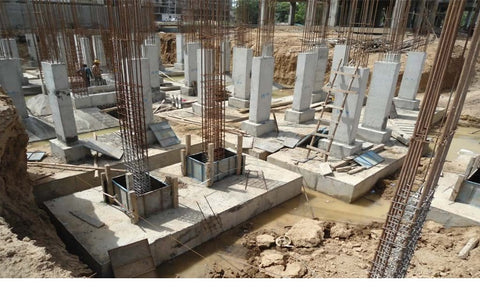
What Determines The Type Of Foundation In Construction
When constructing a building, the foundation is a critical element that determines the stability and longevity of the structure.
The type of foundation used will depend on various factors. Understanding what determines the type of foundation is essential for ensuring that the structure is safe, stable, and able to withstand the demands of its intended use.
1. Soil type and bearing capacity
Soil type and bearing capacity are the most important factors to consider when determining the type of foundation for a construction project. The soil type at the site can impact the foundation's stability and ability to support the structure's weight.
The bearing capacity of the soil refers to the maximum weight the soil can support without excessive settlement. If the soil has a low bearing capacity, deeper, more stable soil layers must be reached to provide adequate structural support.
Soil tests and geotechnical reports are used to determine the soil type and bearing capacity, which is then used to select the appropriate type of foundation.
2. Structural design and load requirements
The building's structural design and load requirements are also critical factors that influence the type of foundation needed. The building's height, weight, and number of floors all impact the foundation's load.
A heavy building will require a stronger foundation, while taller buildings may require deeper foundations to provide adequate support against wind and seismic loads. The building's design, shape, and layout will also influence the type of foundation required.
3. Environmental factors
Environmental factors such as flooding, soil erosion, wind loads, and seismic activity can significantly impact the type of foundation required for a construction project.
For example, buildings in areas prone to flooding may require a foundation that can resist buoyancy forces, while structures in seismic zones require foundations that can withstand ground shaking.
The site's environmental conditions must be evaluated to determine the type of foundation that can provide sufficient stability and resistance against these factors.
4. Budget
The cost of the foundation is a critical factor in selecting the appropriate type of foundation. The foundation's cost includes excavation, material, labor, and equipment costs. The most cost-effective foundation type that meets the structural and environmental requirements of the building should be selected.
However, selecting a low-cost foundation that does not meet the building's needs can lead to long-term stability issues, compromising the structure's safety. Thus, it is essential to consider the cost of the foundation alongside its other requirements to ensure a successful construction project.





